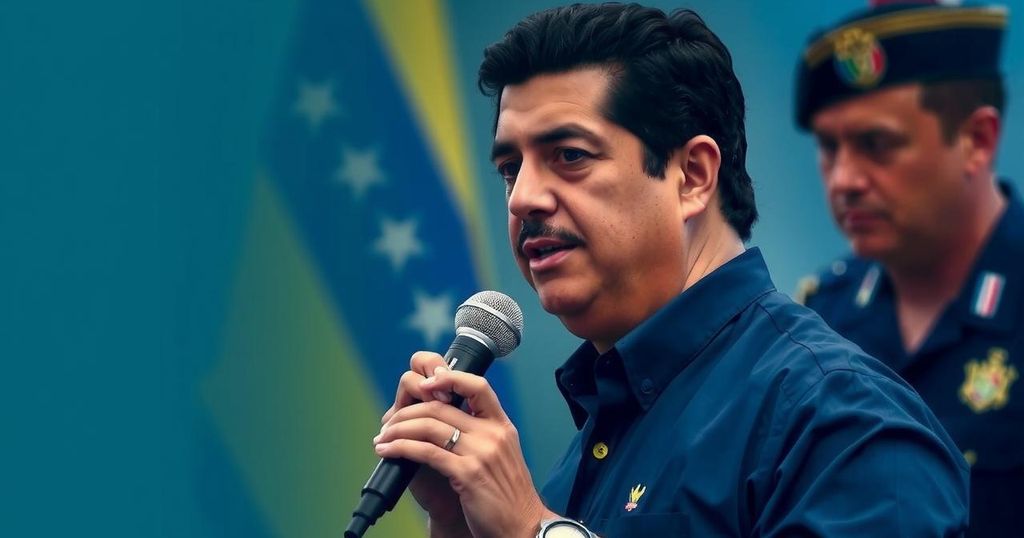US Expands Sanctions Against Maduro’s Allies Over Election Repression
The United States has sanctioned 21 additional allies of Nicolás Maduro over alleged repression following Venezuela’s disputed July presidential election. Among those sanctioned are high-ranking officials from Maduro’s administration. The U.S. also recognized opposition leader Edmundo González as Venezuela’s president-elect. Nevertheless, challenges remain as Maduro’s regime continues to hold considerable power and debate surrounding economic sanctions intensifies.
The United States has expanded its sanctions against Venezuela, targeting an additional 21 associates of President Nicolás Maduro. The sanctions, announced by the Department of the Treasury, allege that these individuals have engaged in acts of repression following the controversial presidential election held in July. Included among those sanctioned are key figures, such as the head of the corrections agency, the director of an intelligence service, and the Minister of the Office of the President.
This latest action follows previous sanctions against 16 of Maduro’s allies, imposed by the Biden administration, and coincides with the recognition of opposition candidate Edmundo González as the legitimate president-elect of Venezuela. The U.S. government has also issued visa restrictions on additional individuals implicated in the suppression of Venezuelan citizens post-election. Despite Maduro’s claims of victory, he has failed to provide the vote counts that would substantiate his assertions. This climate of repression prompted González to seek asylum in Spain after an arrest warrant was issued against him, highlighting the continuing volatility within Venezuela’s political landscape.
While the efficacy of these measures remains questionable, given that Maduro’s loyalists still wield substantial influence within the government, the Venezuelan legislature is currently deliberating a bill that would categorize economic sanctions as a crime against humanity. This legislative move reflects the deep divisions in Venezuelan society regarding the international response to the current regime.
The political scenario in Venezuela has been fraught with tension, particularly following the disputed presidential election in July 2023. President Nicolás Maduro’s government has been accused of electoral manipulation and human rights violations. The Biden administration has taken a firm stance against these actions, imposing sanctions as a means of pressuring Maduro’s administration and supporting opposition figures. The situation remains volatile, with opposition leaders facing persecution and exile, while the ruling regime maintains significant power.
In summary, the United States has intensified its sanctions against allies of President Maduro, citing their roles in the post-election repression in Venezuela. The ongoing situation underscores the challenges faced by the Venezuelan opposition amid a resistant government. With the legislature considering measures against international sanctions, the political climate remains precarious, raising questions about future governance and human rights in Venezuela.
Original Source: abcnews.go.com




Post Comment